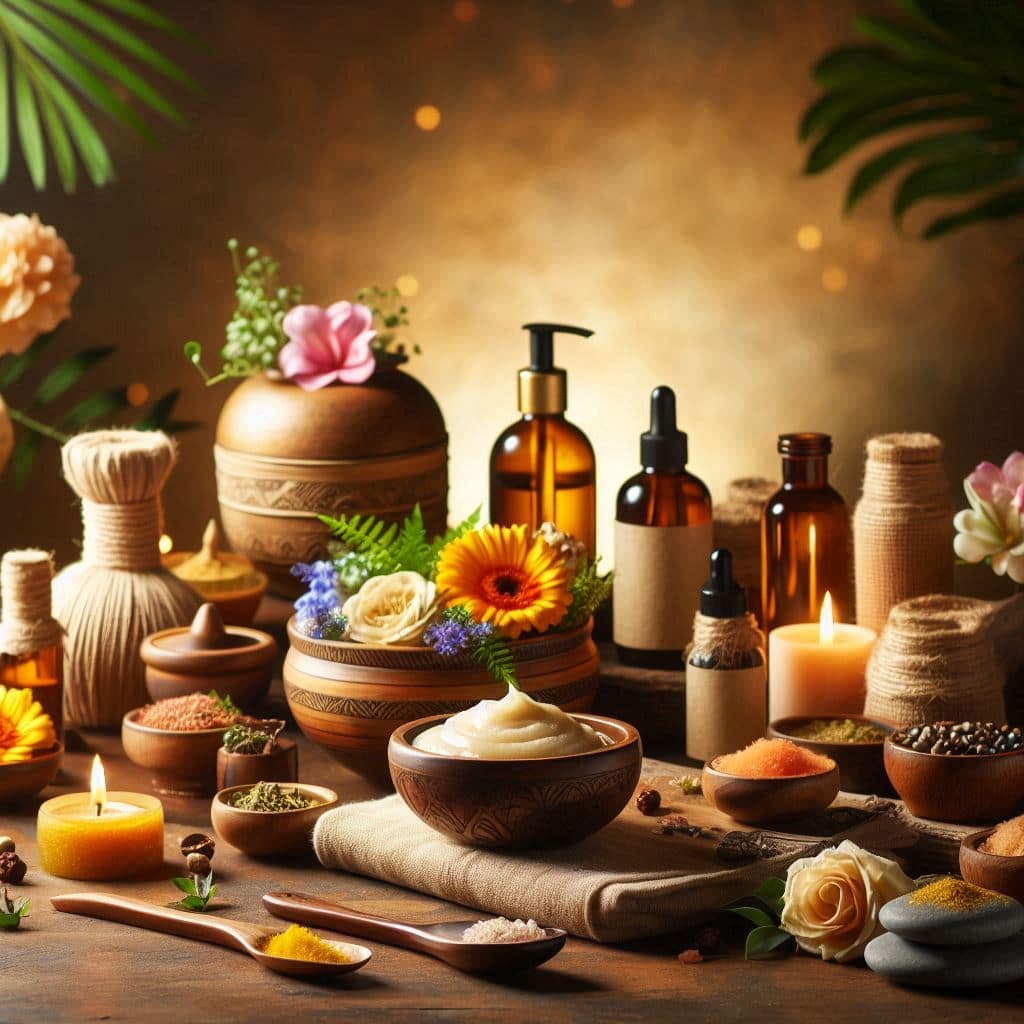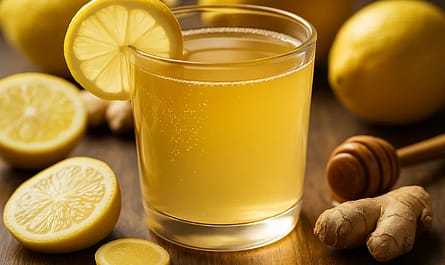
Ayurveda, the 5,000-year-old holistic healing system from India, sees beauty as more than skin deep. True radiance, according to Ayurveda, is a reflection of inner health, balance, and harmony. When our body, mind, and doshas (the biological energies: Vata, Pitta, and Kapha) are in sync, it naturally shows up in glowing skin and lustrous hair.
Unlike conventional cosmetics that may rely on synthetic ingredients for short-term results, Ayurvedic beauty focuses on long-term wellness, using natural herbs, oils, and lifestyle practices to nourish from the inside out.
Did you know that the skin is the human body’s largest external organ? It is also the organ that grows the fastest. Staying and looking young has been desired from time immemorial. Ayurveda is a great combination of art and science for natural beauty. The ancient medicinal discipline of Ayurveda contains several anti-aging secrets. It is a way of life that inspires us to live a healthy lifestyle. Ayurvedic skincare is unlike any other type of beauty treatment. In Ayurveda, it is all about inner wellness, which will subsequently reflect a healthy glow on your skin. Even now, this 5000-year-old kind of medicine works and is the finest cure for most ailments on the planet. It provides a safe and long-lasting anti-aging and skin care treatment, opening up new horizons of beauty, health, and wellness.
“Food is medicine when consumed properly,” says Ayurveda. How healthy you feel is determined by what you eat. Make sure you eat meals high in vitamins and minerals to keep your gut healthy and your skin shining. Add colourful fruits and veggies to your diet to detoxify your skin and achieve supple, acne-free skin.
Ayurvedic Principles of Beauty
Ayurveda defines beauty as a combination of prabha (glow), varna (even skin tone), snigdhata (moisture), and slakshnata (smoothness). To achieve this, Ayurveda emphasizes:
- Balanced Doshas
- Strong Agni (digestive fire)
- Proper elimination (malas)
- Nourished tissues (dhatus)
- Calm, peaceful mind
If any of these elements are out of balance, it can lead to issues such as acne, dull skin, hair fall, or premature graying.
you may also like https://thrievly.com/ayurveda-preventive-healthcare-future/
Skin Care the Ayurvedic Way
Understanding Skin Types by Dosha
Your dosha determines the characteristics of your skin and how you should care for it:
- Vata Skin: Thin, dry, rough, prone to early wrinkles and dullness. Needs deep hydration and grounding care.
- Pitta Skin: Sensitive, prone to rashes, acne, redness, and inflammation. Requires cooling, soothing treatments.
- Kapha Skin: Thick, oily, prone to enlarged pores and congestion. Needs stimulation and detoxification.
Daily Skin Rituals
- Cleansing (Morning and Night)
Use natural, gentle cleansers based on your skin type:- Vata: Aloe vera gel, rose water, or milk-based cleansers
- Pitta: Sandalwood, cucumber, or neem-based cleansers
- Kapha: Tulsi (holy basil), turmeric, or clay-based cleansers
- Exfoliation (2–3 times per week)
Use herbal scrubs like ubtan made from chickpea flour, turmeric, and rosewater to remove dead skin and improve circulation. - Toning
Floral waters like rose water (for Pitta), lavender (for Vata), or tea tree (for Kapha) can tone the skin and refine pores. - Moisturizing
- Vata: Oils like sesame or almond
- Pitta: Coconut or sunflower oil
- Kapha: Light oils like grapeseed or jojoba
- Face Masks (Once a Week)
Herbal face packs made from ingredients like sandalwood, multani mitti (Fuller’s Earth), turmeric, and neem can clarify and rejuvenate the skin.
Internal Support for Skin Health
- Drink warm water with lemon in the morning to flush toxins.
- Eat fresh fruits, vegetables, and whole grains.
- Avoid fried, spicy, and overly processed foods.
- Include skin-supporting herbs like Manjistha, Amla, and Neem.
you may also like https://thrievly.com/panchakarma-therapy-ayurvedas-ultimate-detox-and-rejuvenation-method/
Hair Care the Ayurvedic Way
Understanding Hair Types by Dosha
- Vata Hair: Dry, brittle, frizzy, prone to split ends. Needs nourishment and oiling.
- Pitta Hair: Fine, prematurely graying or thinning. Needs cooling herbs.
- Kapha Hair: Thick, oily, prone to dandruff. Needs cleansing and stimulation.
Daily and Weekly Hair Rituals
- Scalp Massage (Abhyanga)
Regular oil massage improves circulation, strengthens roots, and calms the mind. Use:- Vata: Sesame oil with Brahmi
- Pitta: Coconut oil with Amla or Bhringraj
- Kapha: Mustard or neem oil
- Cleansing
Wash hair with mild, natural shampoos or traditional powders like shikakai, reetha, and amla. Avoid harsh chemical shampoos. - Conditioning
Use herbal pastes or masks of fenugreek, hibiscus, aloe vera, or yogurt once a week. - Detox Hair Mask (Weekly)
Mix neem, bhringraj, and triphala powder in warm water or yogurt. Apply to scalp and leave for 30 minutes before washing.
OIL MASSAGE
You may have heard that an Ayurvedic massage may help with stress management, but did you know it can also improve the radiance of your skin? Mukhabhyanga, an ayurvedic massage performed with warm oil, not only deeply moisturises you but also leaves you with glowing skin. It has numerous health benefits when done on a regular basis. You can give yourself a massage by massaging yourself from your face to the soles of your feet. Even a two-minute massage with an appropriate oil before bed can do wonders for your complexion.
Top Ayurvedic Herbs for Skin and Hair
| Herb | Benefits |
|---|---|
| Amla | Rich in Vitamin C, promotes hair growth and glowing skin |
| Neem | Detoxifies blood, treats acne, dandruff, and infections |
| Manjistha | Purifies blood, improves complexion |
| Bhringraj | Stimulates hair growth, prevents hair fall and graying |
| Brahmi | Calms the mind, strengthens hair roots |
| Turmeric | Anti-inflammatory, brightens complexion |
| Ashwagandha | Reduces stress, supports hormonal skin balance |
Lifestyle Tips for Radiant Skin and Strong Hair
- Follow a daily routine (Dinacharya): Wake up early, eat at regular times, sleep on time.
- Stay hydrated: Drink warm water throughout the day.
- Manage stress: Practice yoga, pranayama, or meditation daily.
- Get quality sleep: Sleep between 10 p.m. to 6 a.m. for skin and hair repair.
- Avoid synthetic cosmetics: Choose plant-based, Ayurvedic alternatives when possible.
Conclusion
Ayurveda reminds us that true beauty is rooted in balance, self-care, and natural living. By understanding your unique dosha and nourishing yourself with herbs, oils, and mindful rituals, you can experience healthy skin and hair that reflect your inner vitality.
In today’s fast-paced world, where beauty is often defined by external products, Ayurveda brings us back to nature—to a rhythm that is gentle, holistic, and sustainable.



